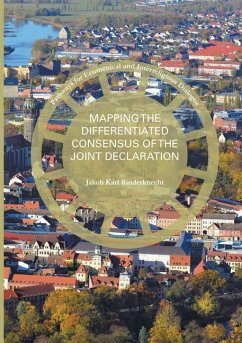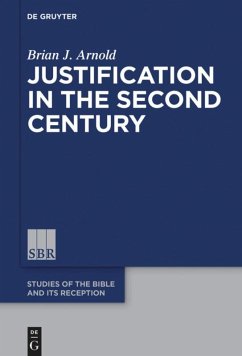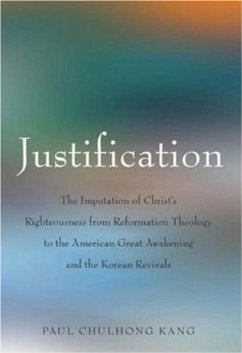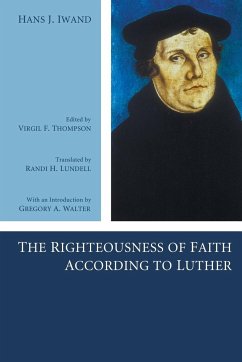
The 'Apocalyptic' Paul
An Analysis and Critique with Reference to Romans 1-8. Dissertationsschrift

PAYBACK Punkte
0 °P sammeln!
The most common critique of the so-called 'apocalyptic' reading of Paul has been terminological in nature, since the term is taken to imply a relationship to Jewish apocalypses. Yet advocates of the apocalyptic Paul use the term to signal a connection to an interpretive genealogy - primarily descended from Ernst Käsemann and J. Louis Martyn - and to affirm a set of theological convictions in relation to Paul's gospel. This invites a different engagement with the apocalyptic reading of Paul, leaving aside questions of nomenclature to explore those genealogical claims, and to examine how well t...
The most common critique of the so-called 'apocalyptic' reading of Paul has been terminological in nature, since the term is taken to imply a relationship to Jewish apocalypses. Yet advocates of the apocalyptic Paul use the term to signal a connection to an interpretive genealogy - primarily descended from Ernst Käsemann and J. Louis Martyn - and to affirm a set of theological convictions in relation to Paul's gospel. This invites a different engagement with the apocalyptic reading of Paul, leaving aside questions of nomenclature to explore those genealogical claims, and to examine how well those theological convictions are grounded in Paul. Therefore, David A. Shaw analyses contemporary accounts of the apocalyptic Paul in relation to the interpretive tradition with which they identify, and in relation to Romans 5-8, which has become the locus classicus of apocalyptic readings of Paul.













